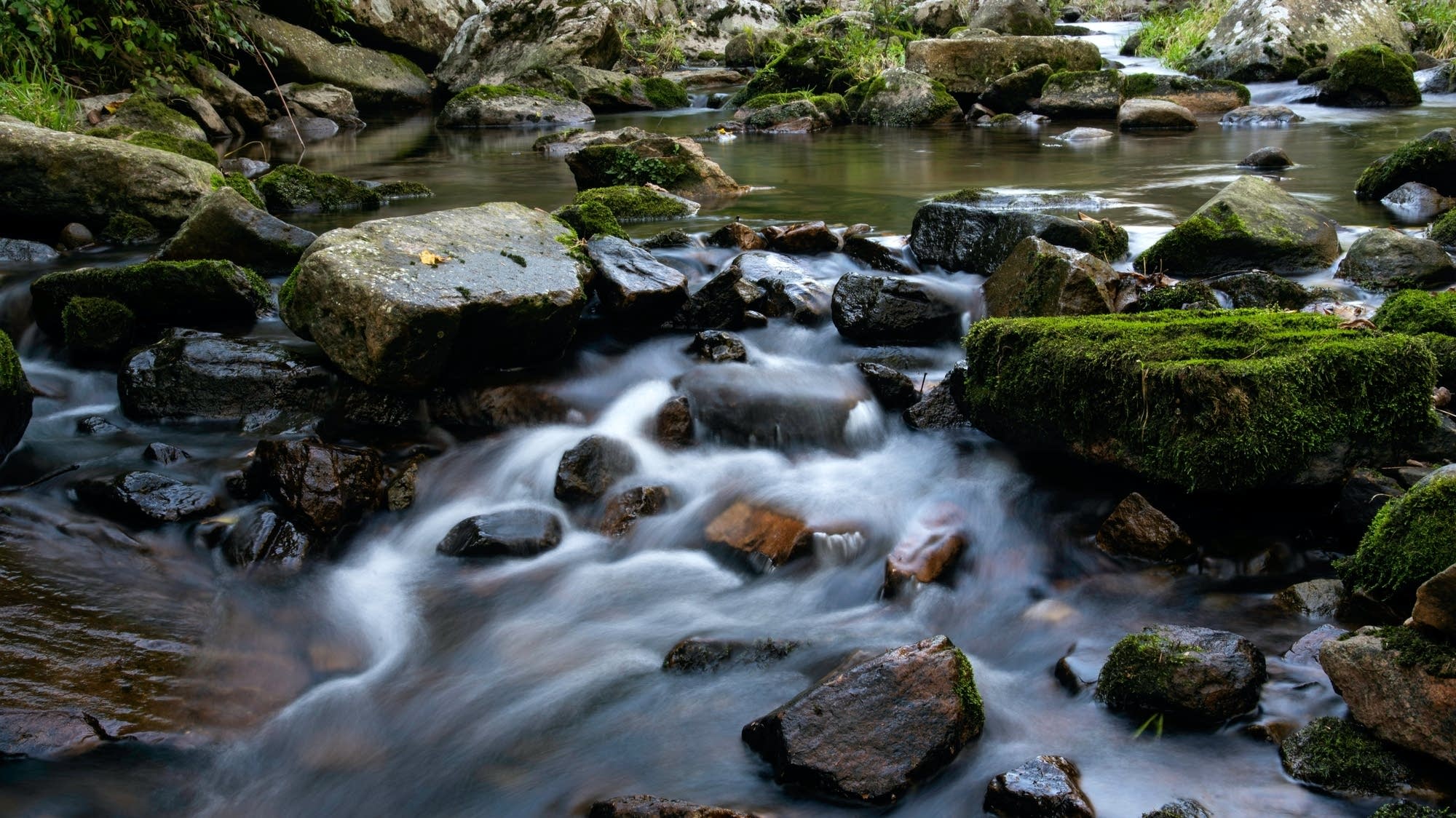By Robert Frost
[NOTE: The following is one of Robert Frost’s dialogue poems, here a whimsical-philosophical conversation between husband and wife. While Frost does not do so himself, I have put the wife’s sayings in bold in order to clarify who is speaking when. — Gabriel Hartley]
"Fred, where is north?"
"North? North is there, my love.
The brook runs west."
"West-running Brook then call it."
(West-running Brook men call it to this day.)
"What does it think it's doing running west
When all the other country brooks flow east
To reach the ocean? It must be the brook
Can trust itself to go by contraries
The way I can with you—and you with me—
Because we're—we're—I don't know what we are.
What are we?"
"Young or new?"
"We must be something.
We've said we two. Let's change that to we three.
As you and I are married to each other,
We'll both be married to the brook. We'll build
Our bridge across it, and the bridge shall be
Our arm thrown over it asleep beside it.
Look, look, it's waving to us with a wave
To let us know it hears me.”
"Why, my dear,
That wave's been standing off this jut of shore—"
(The black stream, catching on a sunken rock,
Flung backward on itself in one white wave,
And the white water rode the black forever,
Not gaining but not losing, like a bird
White feathers from the struggle of whose breast
Flecked the dark stream and flecked the darker pool
Below the point, and were at last driven wrinkled
In a white scarf against the far shore alders.)
"That wave's been standing off this jut of shore
Ever since rivers, I was going to say,
Were made in heaven. It wasn't waved to us."
"It wasn't, yet it was. If not to you
It was to me—in an annunciation."
"Oh, if you take if off to lady-land,
As't were the country of the Amazons
We men must see you to the confines of
And leave you there, ourselves forbid to enter,—
It is your brook! I have no more to say."
"Yes, you have, too. Go on. You thought of something."
"Speaking of contraries, see how the brook
In that white wave runs counter to itself.
It is from that in water we were from
Long, long before we were from any creature.
Here we, in our impatience of the steps,
Get back to the beginning of beginnings,
The stream of everything that runs away.
Some say existence like a Pirouot
And Pirouette, forever in one place,
Stands still and dances, but it runs away,
It seriously, sadly, runs away
To fill the abyss' void with emptiness.
It flows beside us in this water brook,
But it flows over us. It flows between us
To separate us for a panic moment.
It flows between us, over us, and with us.
And it is time, strength, tone, light, life and love—
And even substance lapsing unsubstantial;
The universal cataract of death
That spends to nothingness—and unresisted,
Save by some strange resistance in itself,
Not just a swerving, but a throwing back,
As if regret were in it and were sacred.
It has this throwing backward on itself
So that the fall of most of it is always
Raising a little, sending up a little.
Our life runs down in sending up the clock.
The brook runs down in sending up our life.
The sun runs down in sending up the brook.
And there is something sending up the sun.
It is this backward motion toward the source,
Against the stream, that most we see ourselves in,
The tribute of the current to the source.
It is from this in nature we are from.
It is most us.”
"Today will be the day
You said so.”
"No, today will be the day
You said the brook was called West-running Brook."
"Today will be the day of what we both said."


Leave a Reply